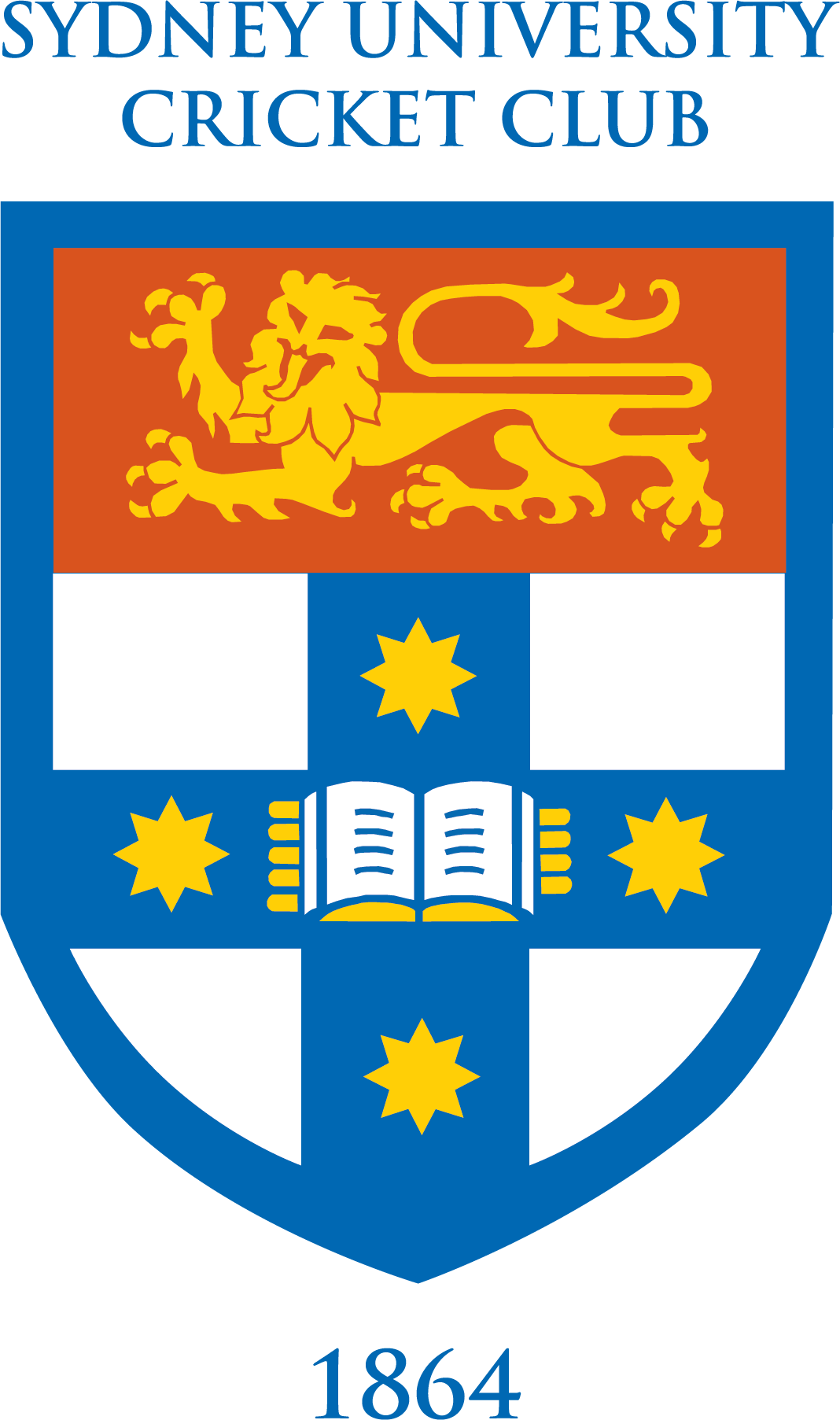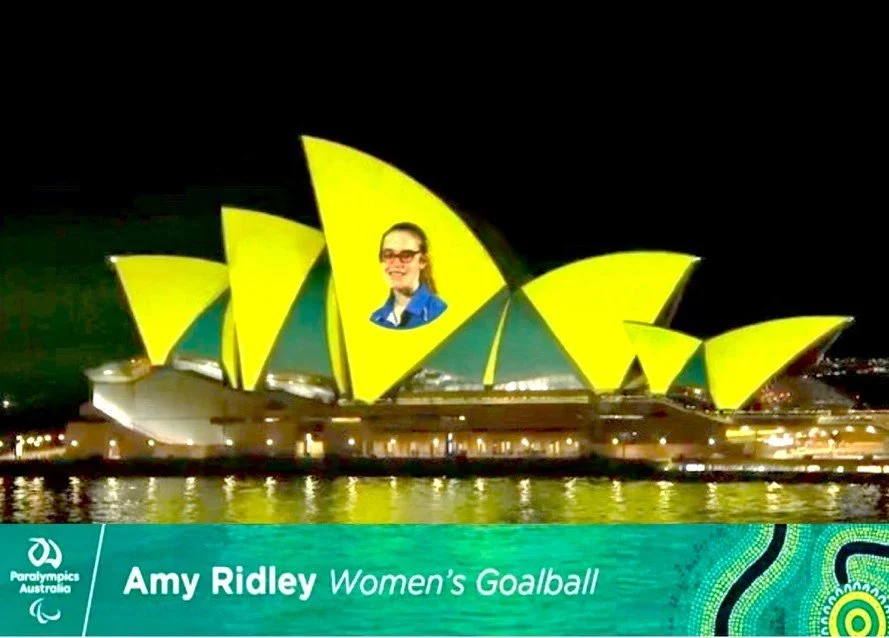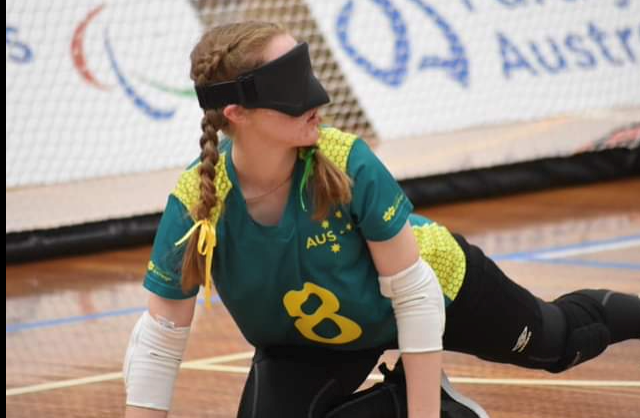AMY RIDLEY CARRIES THE LEGACY … THROUGH GOALBALL!
There was no ticker-tape parade to welcome back our highly successful Olympians and Paralympians. Covid saw to that! However, there was a LIGHT SHOW - https://www.nsw.gov.au/whats-happening/celebrate-tokyo-2020 which was streamed live on Sunday, 5 September, 2021. As photos and videos of their activities were beamed in Aussie Green and Gold on the Opera House, there suddenly appeared “Amy Ridley Women’s Goalball”
Ridley is a name strongly associated with the Sydney University Cricket Club. So, is there some connection between Amy Ridley and the legendary Ridleys who played with, and who contributed in so many other ways to, the SUCC?
I learnt that Goalball - https://en.wikipedia.org/wiki/Goalball is a game invented by Austrians and Germans as a sport for visually impaired returning soldiers after World War II. I then found a 2 minute YouTube video - https://www.youtube.com/watch?v=0bZ51jzmbAQ and became fascinated by the sport, and quickly realised why I had never heard about it. It is the only sport played in the Paralympic Games that has no other ‘equivalent’ Olympic sport. Then, I found the connection with the Ridleys of the SUCC – Amy is indeed the daughter of Andrew, the niece of Nicholas, and the granddaughter of Damon.
However, Amy Ridley is blind.
Nevertheless, Amy has shown extraordinary resilience throughout her life. Year after year she was the top student at Turramurra High School and she is now studying Law and Economics at Macquarie University. She is an exceptional athlete who, in 2017, discovered her ideal sport, goalball. She has been greatly encouraged by her mother, Meredith, and her brothers, and, in a special way, by her father, Andrew.
Amy, the youngest of the Australian Women’s Goalball team in Tokyo, represented NSW as a junior at the Australian Goalball Championships, and the Pacific School Games, and was a member of the Australian Team that won the silver medal at the Youth World Championships in 2019. At the Tokyo Paralympics the team lost their first two matches, but narrowly beat Canada 4-3 in the next round. This was the first Australian Paralympic win since Atlanta 1996! Following their decisive win against the World Champion Russians, they made the quarter finals for the first time ever, but were beaten by Turkey, the subsequent Paralympian Champions.
Amy Ridley playing at the 2019 IBSA Goalball Youth World Championships in Penrith, Australia
When she returned to Australia, Amy said “The best part of the Paralympics was being among so many disabled athletes, and admiring and being inspired by how much they were achieving.”
Andrew Ridley, a dynamic left-hand batsman, followed his father, former 1st Grade captain, Damon Ridley, into 1st Grade in 1989-90. Andrew eventually scored 2160 runs in 1st Grade and 5679 runs for the Club in all grades. His younger brother, Nicholas, scored 5229 runs for the Club. Damon, Andrew and Nicholas between them scored 13,344 runs for Sydney University, a record without parallel. Nicholas’ academic record at Sydney University was simply remarkable. 23 High Distinctions, first class honours, the University Medal.
Andrew captained the Australian Universities of 1991, graduated with 1st Class Honours in Organic Chemistry and was awarded the Bradman scholarship for 1993 and studied at Exeter College Oxford. While at Oxford, he played twenty 1st class games, scoring 857 runs including a majestic 155 at Lords for Oxford University against the University of Cambridge.
Returning to Sydney, Andrew captained SUCC’s 2nd Grade and was Club Captain when the Club won its historic first Club Championship in 1999-2000, an achievement which gave him enduring satisfaction.
Since retirement from playing, Andrew has gained cricket and AFL coaching certificates, then he started coaching goalball. He is now the Australian Men’s Head Coach, with the mission to develop the men’s squad for the 2032 Brisbane Paralympics. Andrew admits: “a lot of my coaching references cricket.” And to exemplify, he explains that he gets his players to ‘listen’ to the ball from the time it is released. This is the same skill which Andrew honed-in ‘watching’ the ball from the bowler’s hand. “Stability, balance and alignment” are skills preached in cricket which Andrew has used in his coaching of the visually impaired.
He explains further: “The visually impaired talent pool isn't big to start with, and then it is split between the likes of Blind Cricket, Blind Tennis, Blind Football and the other Paralympic Sports. Goalball takes a certain type of person who is happy to play reverse dodgeball with a 1.25Kg ball that is hurled at you from around 10 metres away at 60Kph. When Amy throws a ball at me at 20Kph, which is about half pace for her, it hurts!”
“These other visually impaired sports have obvious connections with mainstream sports who are more and more realising the value of being seen to be inclusive. Couple this with the fact that Australia’s employment rate for people with disability is just 47%, which is in line with the Aboriginal & Torres Strait Islander employment rate of 46%, and with goalball being unfunded, then you can see how easily talented sports people can be drawn to the sports backed by the likes of Cricket Australia and Tennis Australia.
“Paralympics Australia funding is limited to high performing teams, hence the Australian Men's Goalball program in particular is stuck in the vicious cycle of lack of funding inhibiting any ability to prove that they are worthy of being funded. Having said that, I think I can make a difference with my coaching and with a new generation of players who will start to develop over the next couple of years - that is why I put my hand up to be Australian Men's Head Coach.“
For players, by far the main cost is in travelling to national camps and to competitions, and traditionally the expenses of coaches, physios and support staff costs are met by the players, so costs for each player are over $10,000 annually – not including trips to ophthalmologists, and surgeries (for example, Amy on average requires at least two eye operations per year).
Perhaps because he was extensively involved with the SUCC, he realised that to have success, sporting teams need support in many ways, including strong management, scholarships to players, and an adequate funding base, so Andrew is actively seeking sponsorship for all aspects of the Australian Men’s Goalball Team. “Visually impaired people have to climb their own personal mountains of hardship, so besides assisting my goalballers through coaching and mentoring, I am trying to help them become successful individuals, and as proud to pull on an Australian goalball shirt as Australian cricketers are proud to pull on the ‘baggy green’ ”.
Andrew is a fine example of a servant leader who puts his players and their welfare well ahead of his own.
Amy Ridley is an inspirational young woman who deserves any success that will undoubtedly attend her.
The Ridley legacy of excellence is in the safest of hands.
James Rodgers



